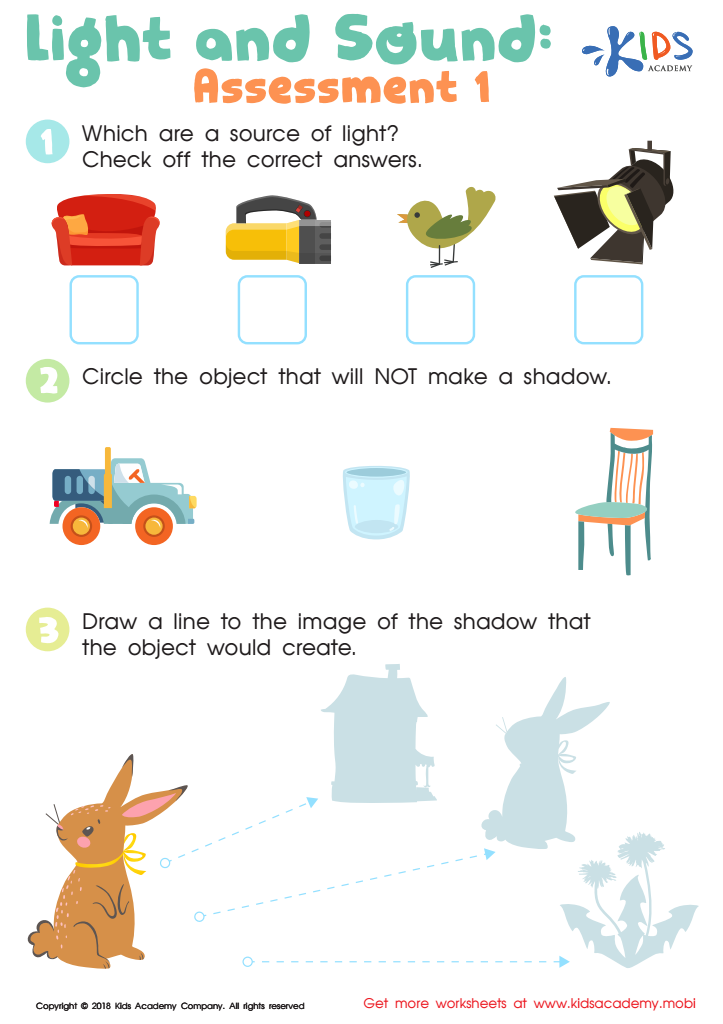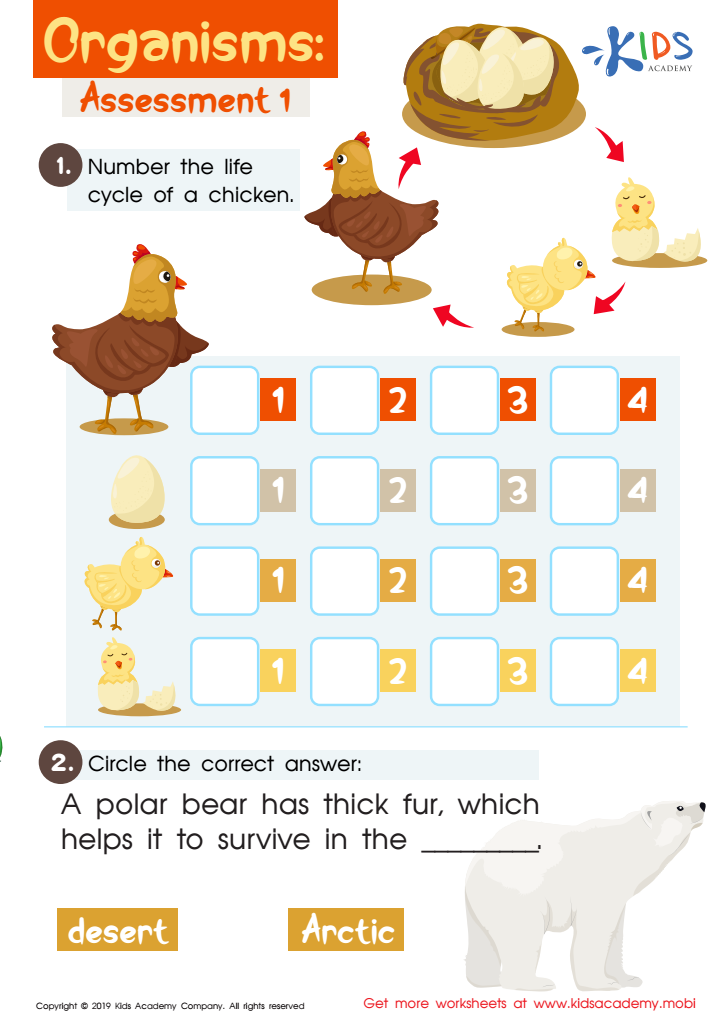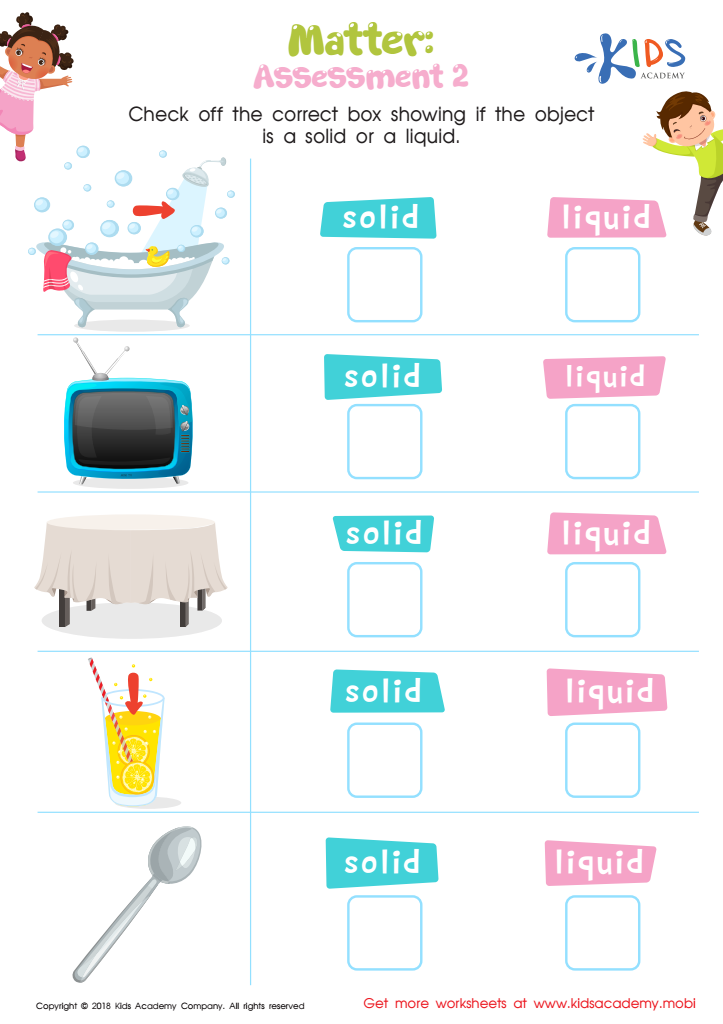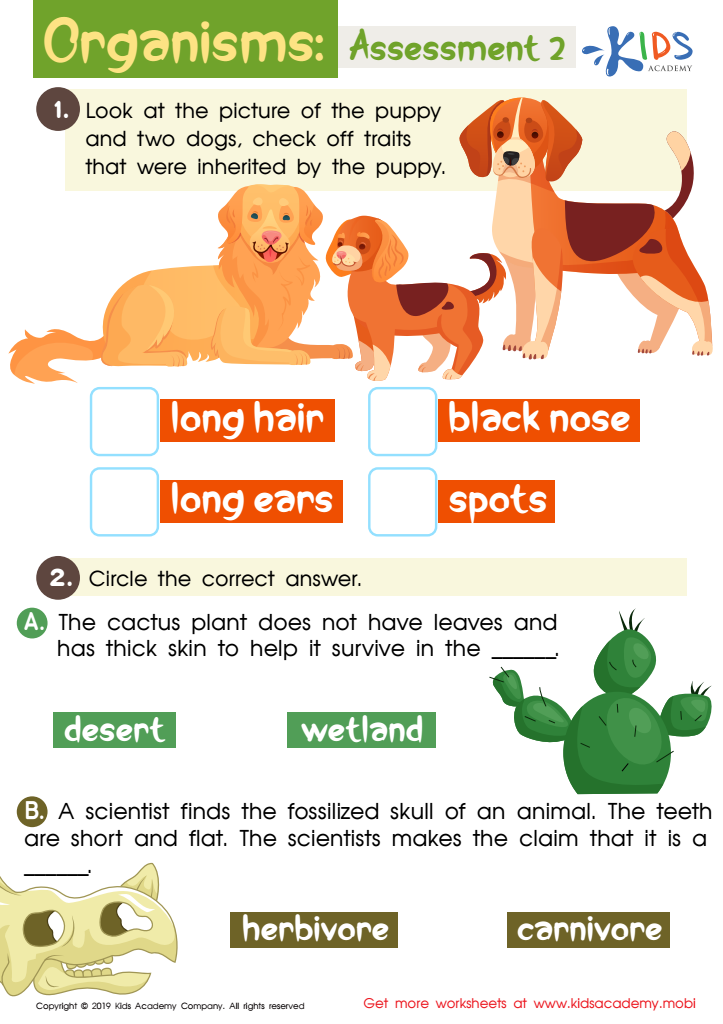Science worksheets activities for Ages 7-9
12 filtered results
-
From - To
Discover a variety of engaging science worksheets and activities designed specifically for children ages 7 to 9. Our resources encourage young learners to explore fundamental scientific concepts through fun and interactive exercises. From simple experiments to hands-on challenges, each worksheet helps develop critical thinking and problem-solving skills. Topics include the Earth, plants, animals, and basic physics, ensuring a well-rounded understanding of the natural world. Ideal for home or classroom use, these printable worksheets foster a love for science while enhancing knowledge retention. Encourage your child's curiosity and spark their interest in discovery with our thoughtfully crafted activities today!


Matter: Assessment 1 Worksheet


Light and Sound: Assessment 1 Worksheet


Organisms: Assessment 1 Worksheet


Space: Assessment 1 Worksheet


Ecosystems: Assessment 1 Worksheet


Light and Sound: Assessment 2 Worksheet


Animals and Plants: Assessment 2 Worksheet


Matter: Assessment 2 Worksheet


Ecosystems: Assessment 2 Worksheet


Space: Assessment 2 Worksheet


Organisms: Assessment 2 Worksheet


Animals and Plants: Assessment 1 Worksheet
Parents and teachers should actively encourage science activities for children aged 7 to 9 because this critical stage of development lays the foundation for inquiry, curiosity, and critical thinking skills. At this age, children are naturally curious about the world around them. Engaging them in hands-on science activities cultivates their love for exploration and fosters a sense of wonder.
Participating in science activities helps deepen their understanding of fundamental concepts, like the laws of nature, physics, and biology, allowing them to make connections in different subjects. Moreover, these activities stimulate problem-solving and analytical thinking, skills crucial for academic success and everyday life. Children learn to formulate hypotheses, conduct experiments, and draw conclusions, embedding the scientific method into their learning process.
Additionally, science activities promote collaboration and communication as children often work in teams, enhancing their social skills. Engaging in science can also broaden their horizons and introduce them to various career paths in STEM (Science, Technology, Engineering, and Mathematics) fields, which are vital for the future workforce.
In summary, encouraging science exploration enriches children's education, nurturing well-rounded and curious individuals ready to tackle the challenges of tomorrow.

 Assign to My Students
Assign to My Students
















